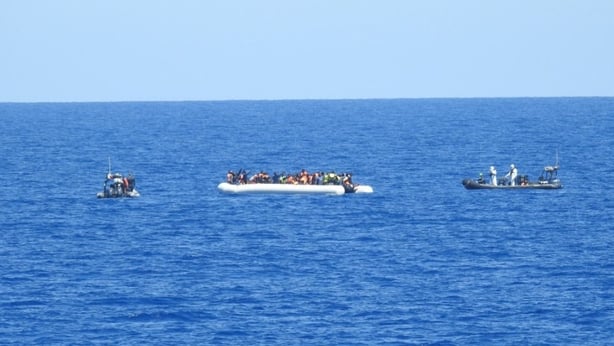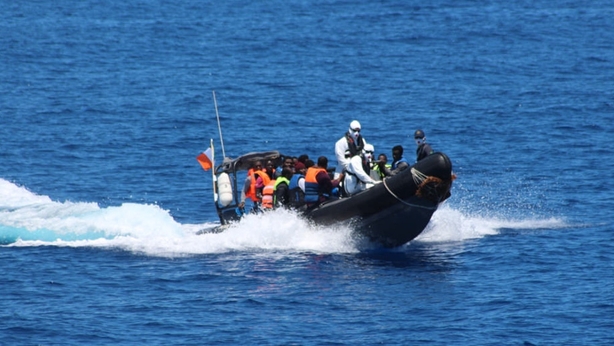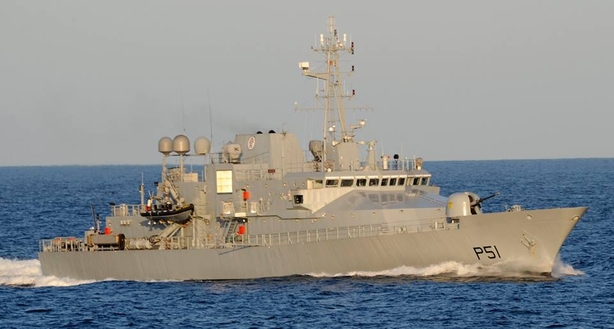The crew of the LÉ Róisín has rescued 125 men and women in a humanitarian mission in the Mediterranean.
The mission today was the first since the vessel left Ireland on 1 May.
Minister of State for Defence Paul Kehoe said the rescue took place 40 nautical miles northeast of Tripoli.
"The 125 migrants comprising 107 men and 18 women were retrieved from an inflatable craft," he said.
They are now receiving food, water and medical treatment where required and will be transferred to the Italian authorities, the Defence Forces added in a statement.
Mr Kehoe also said that the rescue "demonstrates clearly the value of our participation in this important humanitarian response."
The Irish vessel has also rendezvoused with an Italian coastguard vessel from which it took another 240 rescuees on board. The LÉ Róisín is now heading to port in Sicily.
Last year Irish naval vessels rescued more than 8,000 people in similar incidents.



Meanwhile, United Nations special envoy Angelia Jolie has said that global leaders must come together to tackle a "once-in-a-generation" migrant crisis, or risk greater instability that could drive more refugees to Europe.
The UN and the declaration of human rights were among the world-changing outcomes of the global refugee crisis after World War II, she said, adding that the international community is now at a similar pivotal moment.

Ms Jolie told the BBC: "I believe this is again that once-in-a-generation moment when nations have to pull together.
"How we respond will determine whether we create a more stable world, or face decades of far greater instability."
She also said that inaction or uncoordinated efforts that did not address the underlying causes of the crisis would only lead to more conflict and displacement.
"If these things continue to happen, there will be further displacement and more people on the borders of Europe and elsewhere," she said.

